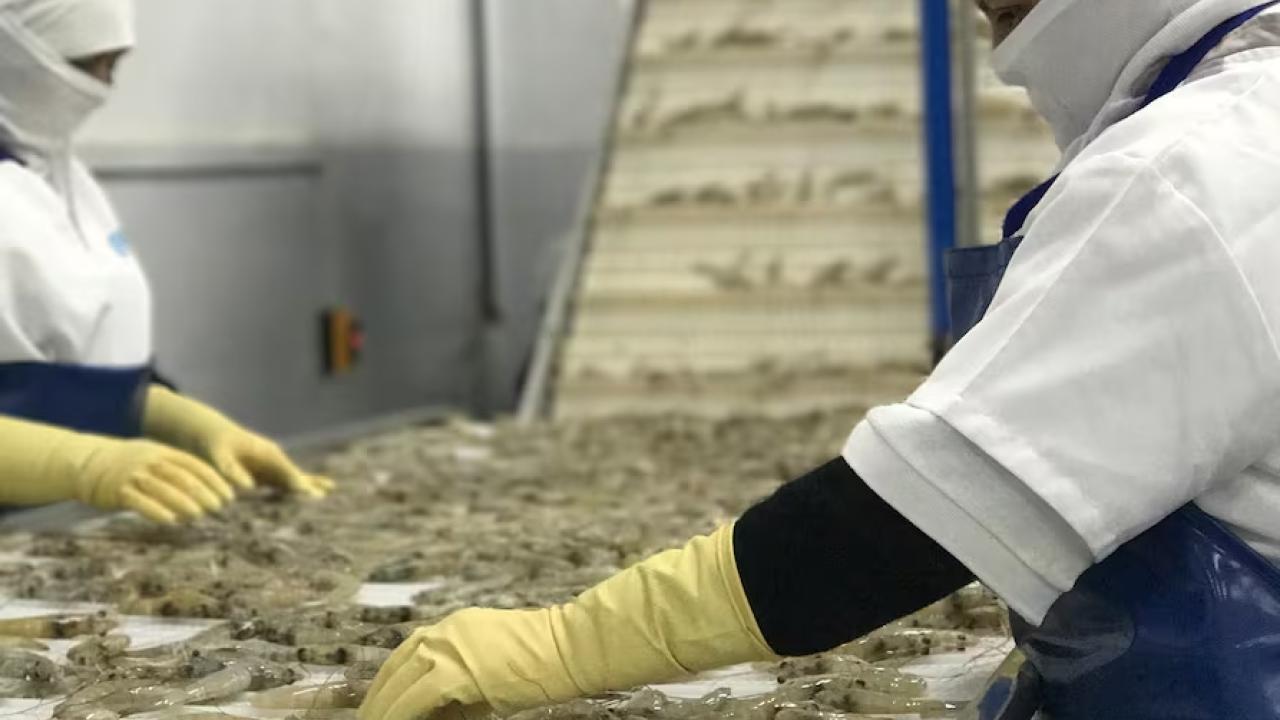
Ecuador's Ministry of Production says the measure was taken based on preliminary and non-conclusive findings and defends the quality of the product.
In light of the suspension of Ecuadorian shrimp exports to Brazil as of December 9, the Ministry of Production, Foreign Trade, Investments and Fisheries reported that dialogue between the health authorities of both countries remains open and that the Undersecretariat of Quality and Safety (SCI) is working on the actions necessary to lift this measure.
The State portfolio explained that through an official letter dated December 5, 2024, the Ministry of Agriculture, Livestock and Supply (MAPA) of Brazil notified the preventive suspension of imports of farmed shrimp to Brazil, as of the indicated date.
The notice states that this suspension is based on preliminary and not conclusive findings.
Brazilian authorities claimed sanitary “irregularities” and decided to suspend the operation as a measure to protect local producers.
The decision was taken by the Ministries of Agriculture and Fisheries after an audit that detected alleged non-compliance with sanitary requirements demanded by Brazil, according to a joint statement from both ministries.
In response to this, the Ecuadorian Ministry of Production indicated that it received a visit from the MAPA technical mission from November 10 to 15, who “highlighted the work of the SCI and the exporting establishments in terms of safety”; however, the sanction was given.
In this context, the ministry confirmed that Ecuadorian farmed shrimp ( Litopenaeus vannamei ) has stood out worldwide for its quality and competitiveness, becoming a benchmark in international markets.
He also indicated that the SCI has strengthened its technical team since 2022 to ensure that controls are carried out in strict compliance with current legal regulations, and that during this year the effectiveness of the rigorous health control system implemented by the SCI was evident, with the technical visits carried out by the health authorities of the destination countries.
"These authorities, which maintain strict controls on the entry of products into their markets, have issued positive results in the evaluations carried out," said the Ministry of Production of Ecuador.
Ecuador reports 1,214,105 tons exported during 2023, in terms of farmed shrimp production. The main export destinations are China, with a share of 53.62%; followed by Europe, with 20.50%; the United States, with 17.87%; on the other hand, Brazil represents 0.08% of the total national production.
Meanwhile, the executive president of the National Chamber of Aquaculture, José Antonio Camposano, said that this is not a new situation: Brazilian producers have made use of the judiciary and legislative branches to try to block Ecuadorian shrimp.
In 2018, it was established that Ecuador could only sell two types of shrimp products: peeled and deveined and cooked.
“We already sell a limited product and today they are saying no to that product as well, simply with the intention that this new government that has come in will give it protection and the inefficiency of that industry will be perpetuated.”
He added that the sector will formally request the Government “that Ecuador not negotiate any type of agreement with Brazil, that there not be any type of tariff concession on products coming from that destination.”
“There is a range of products for which, as an industry, we are also going to request that retaliatory measures be applied to what we describe as an anti-technical, illegal, protectionist measure from a country that enjoys the reputation of being the most protectionist in South America, along with Mexico, which uses this type of illegal regulations to protect its national industry, to sustain a captive local market that does not tolerate any type of competition.”









